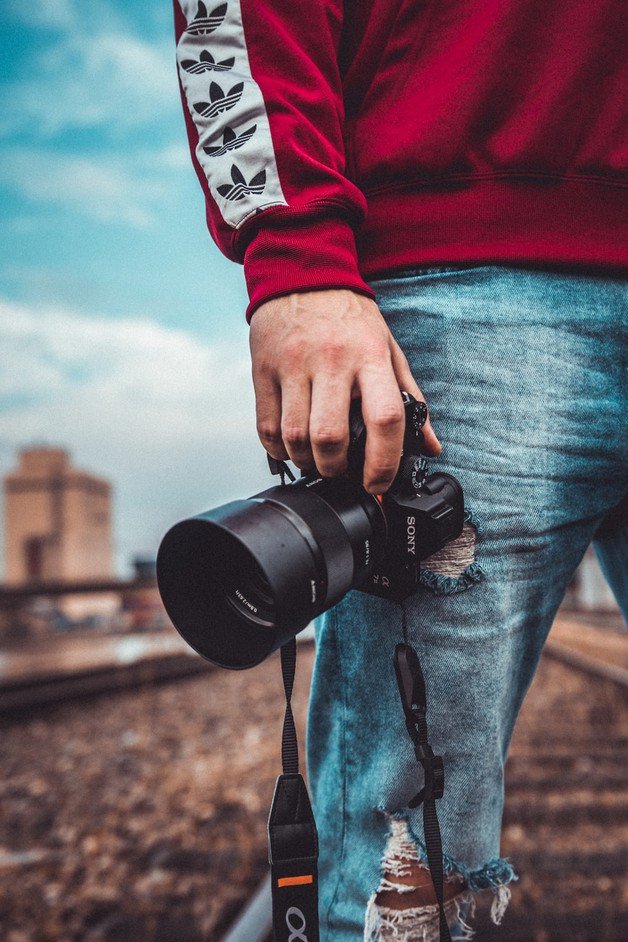Home Camera Lighting and Flashes Camera Filters Camera Batteries and Chargers Memory Cards and Storage
Understanding Full-Frame Cameras: The Ultimate Guide
Category : Cameras | Sub Category : Full-Frame Cameras Posted on 2023-07-07 21:24:53

Understanding Full-Frame Cameras: The Ultimate Guide
Introduction:
A full-frame camera is often considered a milestone for photographers. Full-frame cameras offer a wide range of features. Understanding what makes them unique and deciding if they are the right choice for your needs can be difficult. We will discuss the concept of full-frame cameras, their advantages, and considerations in this guide.
1 What are Full-Frame Cameras?
A full-frame camera is a camera with a sensor size equivalent to 35mm film. Full-frame cameras capture images without the need for adjusting or magnifying the field of view. This results in a better view of the field.
2 Full-Frame cameras have some advantages.
The larger sensor size in full-frame cameras allows for more light gathering capacity, which in turn leads to higher image quality with greater detail and dynamic range.
Full-frame sensors excel in low light conditions, providing less noise and better image quality at high ISO settings.
Full-frame cameras offer a deeper depth of field, which allows photographers to create stunning bokeh effects and make their subjects disappear.
Full-frame cameras provide a wider field of view, making them ideal for landscape and architecture photography.
3 There are considerations.
A) Cost: Full-frame cameras are more expensive than the smaller sensor cameras.
Full-frame cameras tend to be heavier and bulkier due to the larger sensor and components.
It's important to consider lens compatibility when you switch to a full-frame camera, as some of the lenses designed for the crop sensor might not cover the full-frame sensor.
4 Different Photography genres have full-frame cameras.
Portrait Photography: Full-frame cameras produce stunning portraits with creamy bokeh, accurate skin tones, and excellent low light performance.
Landscape Photography can be done with full-frame cameras because of the wider field of view.
Full-frame cameras offer a number of advantages, including faster autofocus, wider dynamic range, and better low light performance, making them suitable for wildlife and sports photography.
Conclusion
It's important to understand whether you need a full-frame camera for your needs or not, as it can open up a new level of creativity and image quality. By considering the advantages and considerations outlined in this guide, you will be well-equipped to make an informed decision that suits your photography style and budget. Go ahead and explore the world of full-frame cameras, and you will find a new way to take pictures.
Leave a Comment:
SEARCH
Recent News
- Zurich, Switzerland is known for its vibrant arts and culture scene, and its theater offerings are no exception. The city is home to a variety of theaters that cater to different tastes and preferences, making it a great destination for theater enthusiasts.
- Zurich, the largest city in Switzerland, is known for its stunning beauty, historic charm, and vibrant culture. From its picturesque old town to its modern architecture, Zurich is a photographer's paradise. Here are some breathtaking Zurich, Switzerland pictures that showcase the city's unique charm.
- Zurich, Switzerland is a beautiful city that offers a plethora of photographic opportunities for both amateur and professional photographers. From stunning architecture to scenic landscapes, Zurich has something to offer for every photography enthusiast.
- Zurich, Switzerland, is a vibrant city known for its stunning architecture, picturesque landscapes, and thriving cultural scene. In recent years, the city has also become a hub for film production, attracting filmmakers from around the world. Interestingly, a connection has emerged between Zurich and Paraguay through the medium of film.
- Zurich, Switzerland is well-known for its stunning beauty and picturesque landscapes. Many visitors flock to this bustling city to soak in its rich culture and stunning architecture. One aspect of Zurich that often captivates visitors is its vibrant art scene, with many opportunities to engage in various forms of art and creativity.
- Zurich, Switzerland, and Hungarian History: A Unique Blend of Culture
- Zurich - A Hub for Hungarian Films
- Zurich, Switzerland is a beautiful city known for its stunning views, rich history, and vibrant culture. From the picturesque Old Town with its charming cobblestone streets to the crystal-clear waters of Lake Zurich, this city has a lot to offer both residents and visitors.
READ MORE
3 months ago Category : fmount

Zurich, Switzerland is known for its vibrant arts and culture scene, and its theater offerings are no exception. The city is home to a variety of theaters that cater to different tastes and preferences, making it a great destination for theater enthusiasts.
Read More →3 months ago Category : fmount

Zurich, the largest city in Switzerland, is known for its stunning beauty, historic charm, and vibrant culture. From its picturesque old town to its modern architecture, Zurich is a photographer's paradise. Here are some breathtaking Zurich, Switzerland pictures that showcase the city's unique charm.
Read More →3 months ago Category : fmount

Zurich, Switzerland is a beautiful city that offers a plethora of photographic opportunities for both amateur and professional photographers. From stunning architecture to scenic landscapes, Zurich has something to offer for every photography enthusiast.
Read More →3 months ago Category : fmount
